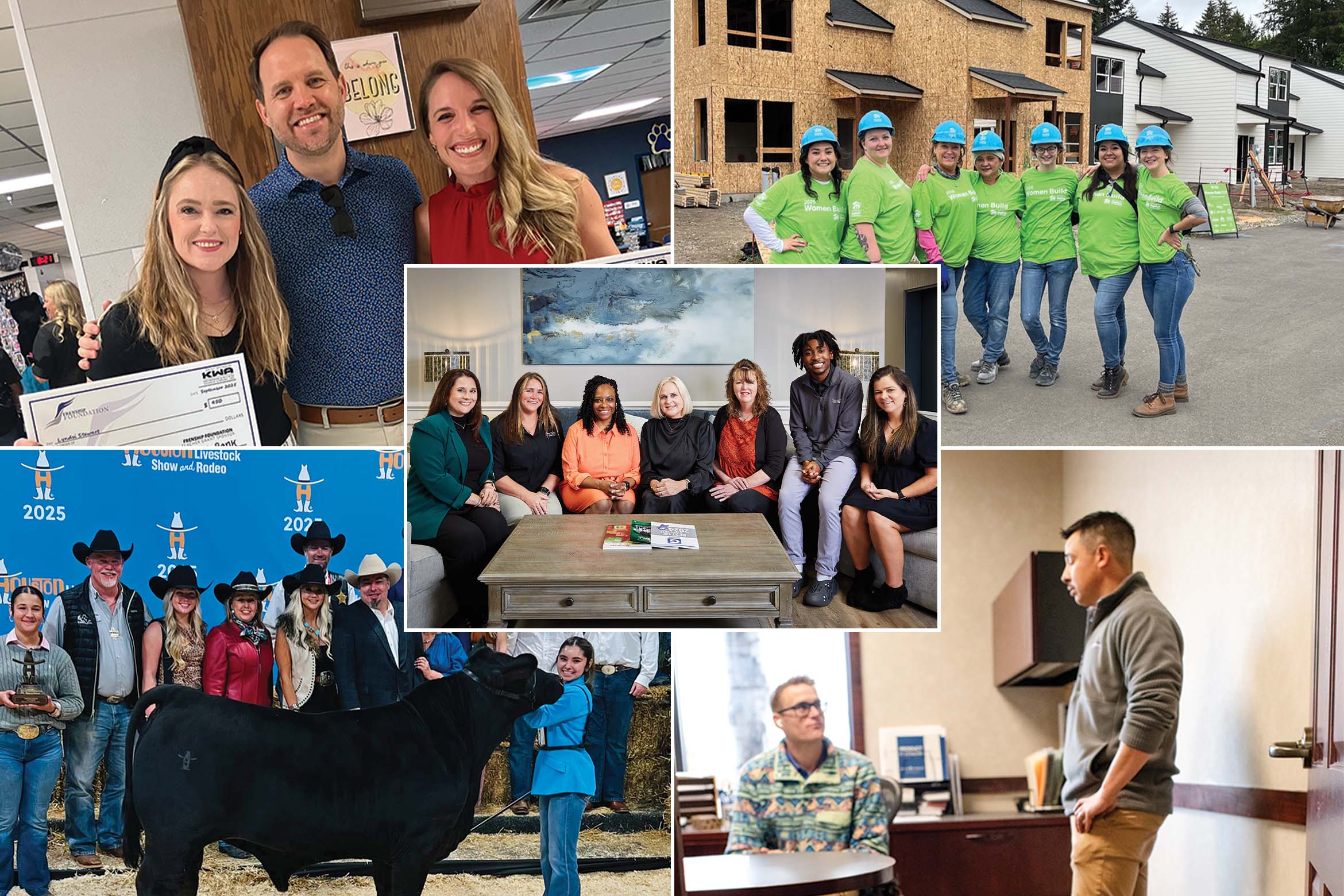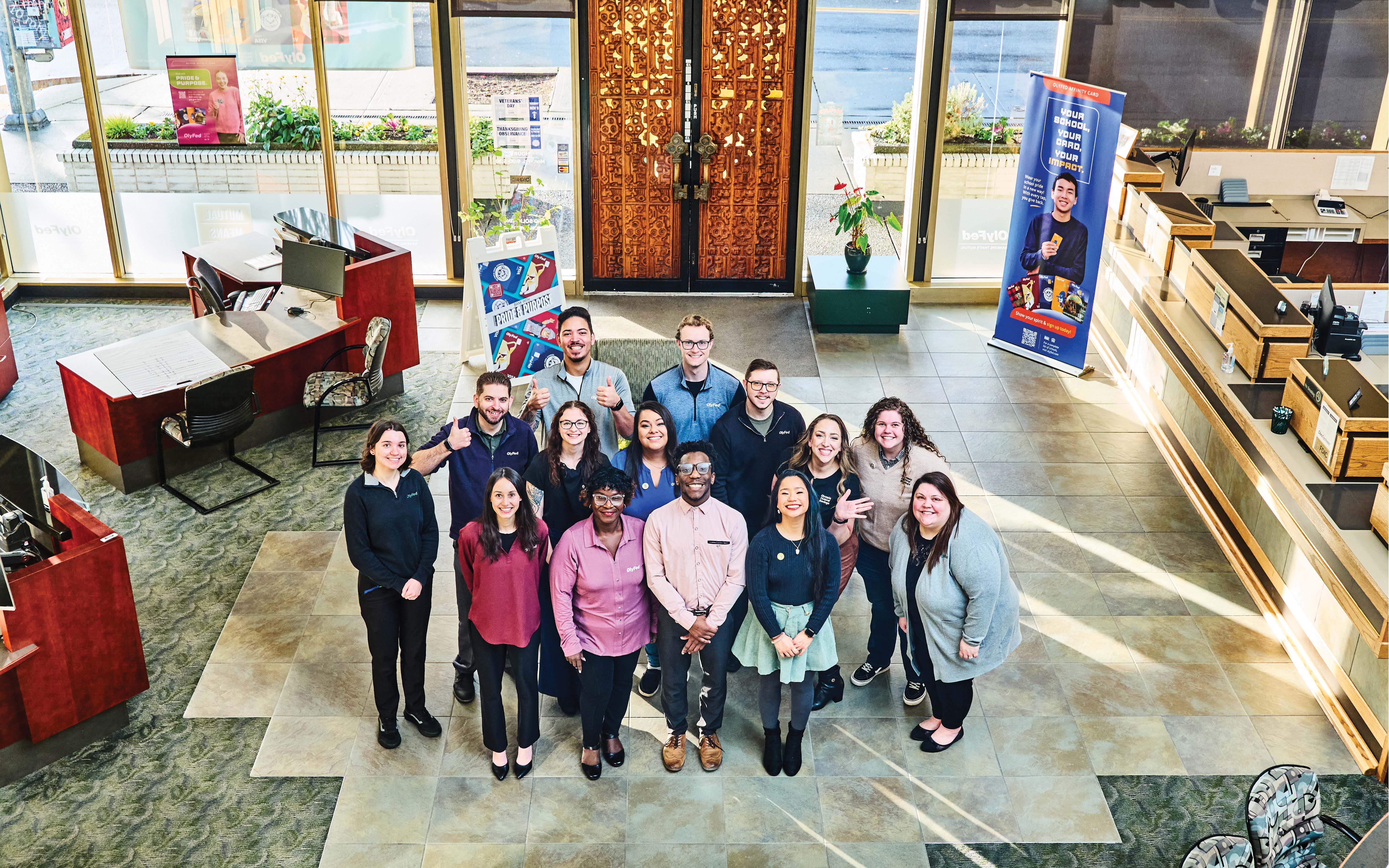Taking time for self-reflection helps create a culture of inclusion and acceptance, where individuality is celebrated and individual strengths become collective strengths.
Lindsay LaNore: Self-Awareness in Leadership
January 12, 2024 / By ICBA
Taking time for self-reflection helps create a culture of inclusion and acceptance, where individuality is celebrated and individual strengths become collective strengths.
On a recent flight to Washington D.C., I was inspired to think about self-awareness and how it can set a good leader apart. I had a coveted aisle seat, and another passenger came to sit next to me in the middle seat. We exchanged pleasantries, then about 20 minutes into the flight, they started tapping their foot. They did it with enough force that it shook the row of three seats, and they continued to do it for the remainder of the two-hour flight. I found a way of tuning it out, but not without contemplating how important self-awareness is in any social context, whether it’s business class or the boardroom.
Self-awareness, by definition, is the conscious knowledge of one’s own character, feelings, motives, thoughts, actions and desires. It’s also the first component of psychologist Daniel Goleman’s hugely successful Emotional Intelligence (E.I.) model. In fact, Goleman defines self-awareness as the block on which the other four components of E.I. are built.
Being able to understand how our actions affect others and having the ability to reflect on our responses to other people’s actions are essential skills in any leader’s toolkit, and they help build a collaborative work environment. Would my journey to D.C. have been easier if my neighbor had realized what they were doing—and stopped? Knowing I was uncomfortable with the situation, should I have said something to try to defuse the tension?
Being aware of our motivations, strengths, weaknesses and biases helps clarify how those issues affect our work environment and, as leaders, our ability to make decisions. Sometimes, acknowledging our limitations might mean soliciting help from and delegating tasks to other team members who are better qualified to complete them. On other occasions, it might mean learning new skills to fill any gaps. Displaying honesty and showing humility also encourages open dialogue, creating a safe space for the rest of the team and encouraging them to follow suit.
Here are some ways in which you can cultivate self-awareness at your bank:
Be open to learning. Get out of your comfort zone, even if it means admitting you don’t know something.
Acknowledge your fears and blind spots. It will help move them out of your way.
Practice listening. Pay full attention to others when they are speaking. Watch their body language and facial expressions.
Observe your responses. Pay attention to your reactions, both mental and physical.
Share your perspective with your team and ask for theirs.
Take feedback. Solicit honest feedback on your behavior from family, friends and colleagues who know you well.
Set some time aside each day for self-reflection, whether it’s through journaling or mindfulness meditation.
Taking time for self-reflection helps create a culture of inclusion and acceptance, where individuality is celebrated and individual strengths become collective strengths.
Subscribe now
Sign up for the Independent Banker newsletter to receive twice-monthly emails about new issues and must-read content you might have missed.
Sponsored Content
Featured Webinars
Join ICBA Community
Interested in discussing this and other topics? Network with and learn from your peers with the app designed for community bankers.
Subscribe Today
Sign up for Independent Banker eNews to receive twice-monthly emails that alert you when a new issue drops and highlight must-read content you might have missed.
News Watch Today

Join the Conversation with ICBA Community
ICBA Community is an online platform led by community bankers to foster connections, collaborations, and discussions on industry news, best practices, and regulations, while promoting networking, mentorship, and member feedback to guide future initiatives.













